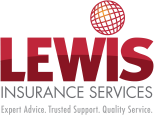
How Inflation is Affecting the Insurance Obligations of Your Business
Both consumers and businesses have been impacted by inflation over the past three years.
Although Inflation is generally decreasing, the cost of building materials, machinery and equipment and car parts have increased by 25% in the past three years.
Like any other business, insurers have been impacted by inflation, including costs of repairing cars and rebuilding costs, which have been passed onto customers through increased premiums.
In this post, we’ll explore how inflation could cause under-insurance of your key business assets and what you can do to avoid it and manage insurance costs.
Understanding Inflation and Its Impact on Insurance
Firstly, as the cost to rebuild or replace machinery has increased, the sums insured (declared values) on your insurance policies should have increased.
Underinsurance occurs when the sum insured on your insurance policy — that is, the amount listed as the maximum paid out by the insurer in the event of a claim — isn’t enough to cover the full cost of rebuilding, repairing or replacing your home, commercial building or plant & equipment.
For example, suppose your building insurance has a $500,000 sum insured and the cost to rebuild after a significant loss is quoted as $700,000. In that case, you will not only have to pay the $200,000 gap but also have Average (Co-insurance) applied, resulting in a claim payment of approximately $460,000.
So, it’s key to ensure your building, machinery and contents for the current replacement value to avoid any gap in cover and delays in settlement.
Tips for Managing Your Insurance Obligations in an Inflationary Environment
You can do several things to ensure that you maintain the correct sum insured.
1. Review Your Policies Regularly: businesses continually change to ensure you have the cover you need and keep your insurance adviser up to date, whether it’s inflation related, a new line of products or higher stock levels.
2. Work with an Experienced Insurance Broker: Working with an experienced insurance broker can help you navigate the complexities of insurance in an inflationary environment. A broker can help by recommending a registered valuer for buildings and equipment.
3. Consider Different Insurance Options: There are many different insurance cover options available or higher excesses or revise the mix of cover to reflect changes in your business. For example, you may want to consider a bundled insurance policy combining several types of coverage to save money.
Inflation is expected to remain high for some time, so it’s important to check and see if you have the right mix of cover, excess and premium to meet your needs.
Speak to one of our insurance specialists today, who can work with you to tailor an insurance program that meets your needs.
Contact Lewis Insurance Services on 07 3217 9015 or send us an email by clicking here, we can guide you with Emergency Planning and Business Continuity. We pride ourselves on being informed about risk and insurance and ensuring you have the right Insurance policy for your needs. This article was published by our AFSL Licensee, Insurance Advisernet Australia P/L, www.insuranceadviser.net
General Advice Warning
The information provided is to be regarded as general advice. Whilst we may have collected risk information, your personal objectives, needs or financial situations were not taken into account when preparing this information. We recommend that you consider the suitability of this general advice, in respect of your objectives, financial situation and needs before acting on it. You should obtain and consider the relevant product disclosure statement before making any decision to purchase this financial product.










